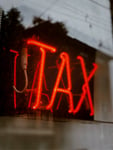From June 1, Thailand will begin charging each foreign visitor 300 THB upon entry, subject to Cabinet approval.
The funds gathered, according to Wednesday’s (Jan. 1) speech by Thailand’s Tourism Minister Phiphat Ratchakitprakarn, would be used to support the recovery of foreign travelers injured in accidents in Thailand as well as the development and upkeep of tourist attractions.
According to Mr. Phiphat, 25 million foreign visitors are anticipated in Thailand in 2023. Foreign nationals having work permits and border crossings would not be charged any fees. Border passes are mostly utilized by those engaged in cross-border trade between Thailand and its neighbors, Myanmar, Laos, Cambodia, and Malaysia.
The National Tourism Policy Committee (TTC), according to Mr. Phiphat, will talk about collecting the 300 baht fee on January 24. The idea will be presented to the Cabinet in February after the TTC meeting. Thailand will begin collecting the fee on June 1 if it is allowed.
The present version of the entrance fee, also known as a “tourist tax,” was first suggested in January 2022. But it has consistently been put off. While Mr. Phiphat did not elaborate on the specifics of how the fee will be collected from tourists, it is expected to be incorporated into the airline’s online booking process and charged to travelers at the time they purchase a ticket.
There will undoubtedly be some kind of “tourist fee,” that much is certain. Instead than asking “if,” it is better to ask “when.” This is due to the fact that Thailand is legally required to adopt the tourism fee, hence the current idea cannot be abandoned.
Speaking in September 2022, Mr. Phipat asserted that the fee had previously had the previous administration’s approval, was a requirement of the National Tourism Policy Act of 2019, and needed to be put into effect.
The money raised by the fee will be used for a variety of purposes, including infrastructure improvements, sustainable development, maintenance of tourist attractions, and a fund for foreign visitors’ insurance. In the event of an emergency, such as a car accident, sudden illness, or death, the fund will assist visitors. The Public Health Ministry got more than 700 million baht in compensation from the Thai government between 2017 and 2019 as a result of uninsured foreign tourists who received medical care in Thailand but departed the country without paying their bills.
Mr. Phipat had previously stated that a memorandum of understanding had been inked with Krung Thai Bank to put in place a payment system to make it easier to collect the charge and to handle transactions via a website, smartphone application, and air ticketing systems.
Thailand is not the only country that charges foreign visitors. Many nations have put in place some kind of tourist tax, including Switzerland, Japan, New Zealand, France, Spain, Germany, Portugal, Bali in Indonesia, and the majority of Caribbean islands.




























Be First to Comment